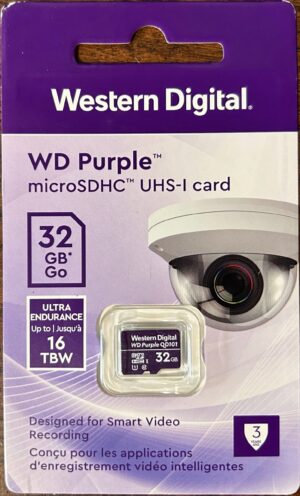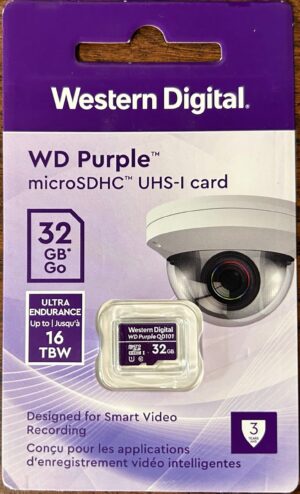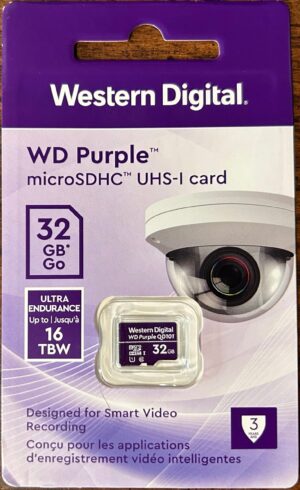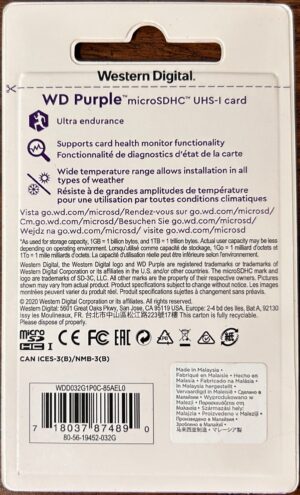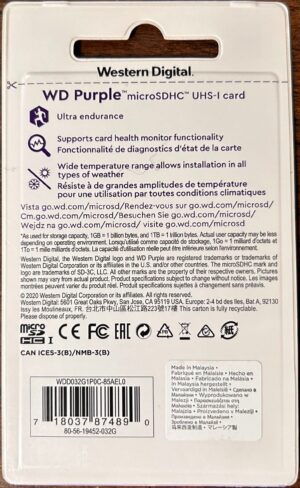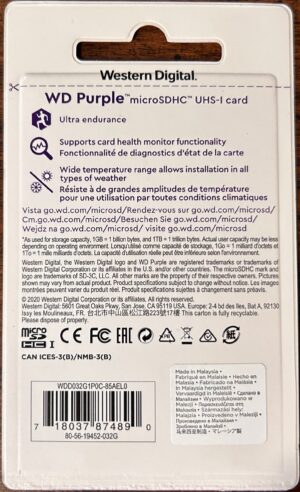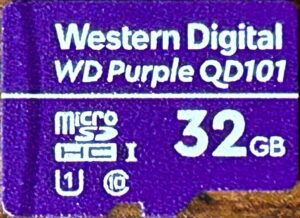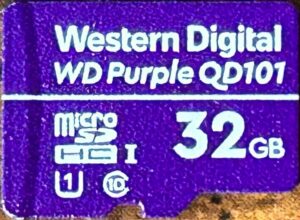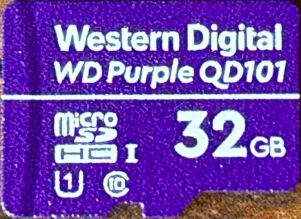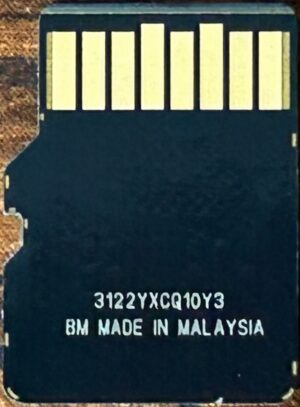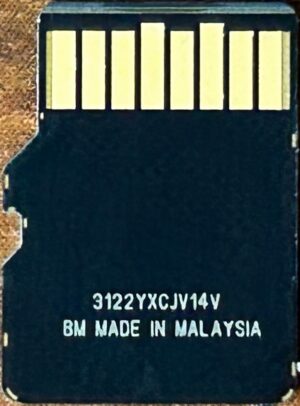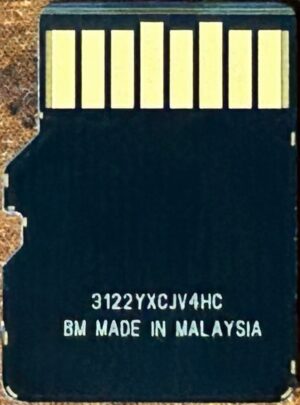- Obtained from: Amazon
- Price paid: $13.04
- Advertised capacity: 32GB
- Logical capacity: 31,914,983,424 bytes
- Physical capacity: 31,914,983,424 bytes
- Fake/skimpy flash: Skimpy (0.27% skimp)
- Protected area: 83,886,080 bytes
- Adjusted skimp: 0.0035%
- Speed class markings: Class 10, U1
- CID data:
- Manufacturer ID:
0x03* - OEM ID:
0x5344(ASCII:SD) - Product name:
0x5758333247(ASCII:WX32G) - Product revision:
0x80
- Manufacturer ID:
* This manufacturer ID/OEM ID combination is pretty well known to be associated with SanDisk.
Discussion
I think this is one I found out about after perusing through SanDisk/Western Digital’s online store and seeing what options they had available. And since I seem to be reviewing everything else of SanDisk’s, why not add this to the mix?
Performance-wise, SanDisk set the bar pretty low on this one — there are no speed claims on the package, and the card itself only bears the Class 10 and U1 markings. It easily met the requirements for both of those markings. All performance metrics came within one standard deviation of average, with sequential write speeds being the worst of the four scores. Overall, it performed about as well as the Samsung EVO Plus 32GB.
All three samples are currently undergoing endurance testing:
- Sample #1’s first error was a two-sector wide address decoding error during round 1,367. It chugged along for quite some time without any further errors. During round 3,064, however, the USB hub — to which its card reader was plugged into — had issues and needed to be reset. When I plugged the hub back in, every other card on this hub immediately started working; however, this card wouldn’t respond to commands, giving us yet another example of a SanDisk card dying suddenly and without warning.
- Sample #2’s first error was a two-sector wide address decoding error during round 1,762. It died the same way sample #1 did — when the USB hub that the reader was plugged into needed to be reset, it decided to give up the ghost. It had been doing just fine right up until then.
- Sample #3’s first error was an address decoding error, affecting four sectors, during round 1,645. And, not wanting to deviate from the pack, it died the same way samples #1 and #2 did — at the same time as when a USB hub needed to be reset.
Side note: All three samples did technically experience earlier errors; however, I’m almost positive that these were device mangling errors and thus not the card’s fault. Therefore, I’ve decided to discard those errors. I’ve since added code to my program to detect and mitigate these types of errors.
Overall, these cards were OK in terms of endurance — lasting an average of 4,296 read/write cycles before failing (as of this writing, the average for all cards is 4,879 read/write cycles), OK in terms of performance, and above average in terms of cost per gigabyte. Personally, I think I’d say “go ahead if you find a good deal on them…but otherwise, don’t bother”.
December 16, 2024


